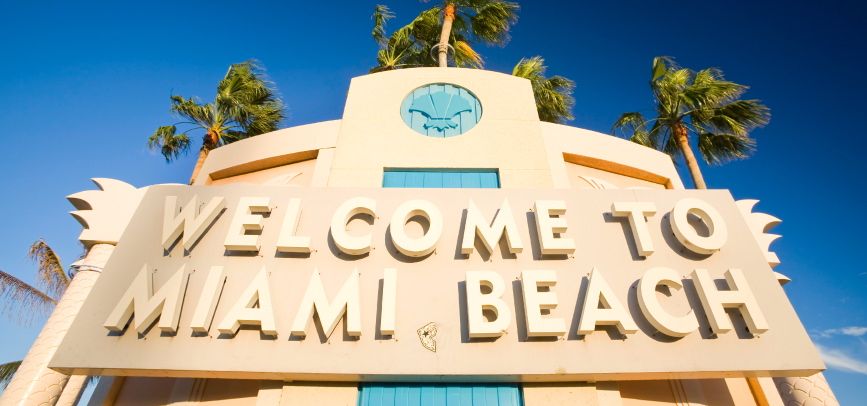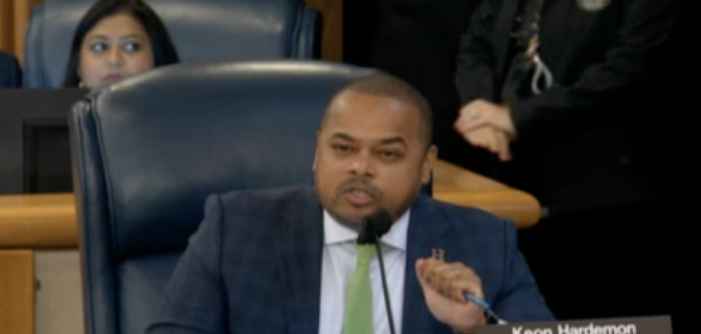Says new rules target people who ‘look like me’
Miami-Dade Commissioner Keon Hardemon on Tuesday blasted Miami Beach leaders for approving an increase in parking fees, the doubling of tow fees and the shutting down of the beach at 6 p.m. — measures they say should stem the violence that has often come with the Spring Break revelry.
“Onerous, Draconian, heavy-handed,” Hardemon called the actions taken by the Miami Beach Commission to crack down on Spring Break. “Especially when directed at people who, for the most part, look like me.”
He stopped short of calling the policies racist. But that’s what he meant. And Hardemon asked if the county could bill the city of Miami Beach for use of its officers during the two-week Spring Break season, which has come to attract many Black college students.
According to the city’s website, there will be curfews, bag checks at the three only entrances open to the beach (on 5th, 10th and 12th), DUI checkpoints, flat rates of $30 to $100 in parking garages, closed surface parking lots and double the tow charges to $516. But, hey, they’ll enhance trolley service.
Coolers, inflatable devices, tents, tables and a lot of other things — presumably, guns — will not be allowed on the beach.
Read related: Miami-Dade may cut city of Miami’s power to approve huge LED billboards
“Miami Beach obviously needs policing, but why should we pay for the sort of policing that’s going to be problematic for individuals coming to the match to enjoy themselves? I don’t want to pay for the mistreating people or violating of people’s rights,” said Hardemon, a former Miami city commissioner. “If they use our officers, can we require them to pay our officers?”
So, wait. He’s okay with violating people’s rights as long as someone else pays for it?

Miami-Dade Chief Operating Officer (read: deputy mayor) Jimmy Morales and Commission Chairman Oliver Gilbert said that mutual aid agreements like the one with Miami Beach meant that the cities lent each other aid without charging for it. Said Hardemon: “I’m sure they use us more than we use them.”
Gilbert said it may be time to revisit the mutual aid agreements because they are used not only for emergencies but for this type of preventative initiative. “That, to me, is problematic because we don’t have a say in the actual plan,” Gilbert said. “We are going to put our officers in the position to do something that might be questionable.”
Hardemon added that the measures could affect tourism countywide.
Read related: Miami Beach has lots of streets named for men; only one named for a woman
“Miami Beach is, to me, making itself to be a place that is unwelcome to a complete group of people,” Hardemon said, adding that people shoot and kill each other in the city when it’s not Spring Break, too. “The number of things they are doing to reportedly discourage Spring Breakers is something that is wrong.
“The eyes of the nation will be on Miami Beach,” Hardemon said. “No one should be coming to Miami-Dade County to break the law, but I believe a majority of these are law-abiding citizens. These are kids.”
Vice Chairman Anthony Rodriguez said he was also concerned about the business owners who would have to close early and wondered if any of the increased towing fees could go to offset their losses.

